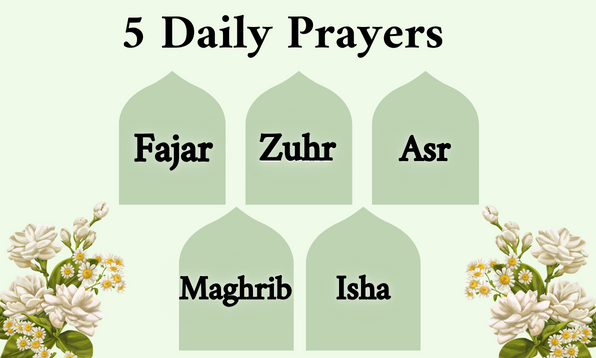Embracing the Diversity of Islamic Prayers
Significance of Farz, Sunnah, & Tahajjud
9/15/20232 min read


Prayer is the cornerstone of a Muslim's relationship with Allah. It's a direct channel of communication, a means of seeking guidance, forgiveness, and blessings from Allah. In Islam, there are various types of prayers, each with its own significance and rewards. This blog aims to unravel the different types of prayers, outlining the Farz (obligatory) and Sunnah (recommended) prayers, while also delving into the importance of Tahajjud, a voluntary night prayer that holds immense spiritual value.
Farz Prayers
Farz prayers are obligatory, meaning they must be performed by every accountable Muslim. These prayers are an essential part of a believer's daily life and devotion to Allah.
Fajr (Dawn) Prayer
The Fajr prayer is the first prayer of the day, performed before sunrise. It consists of two Rak'ahs (units of prayer).
Zhur (Noon) Prayer
Zhur prayer is offered after the sun has passed its zenith, at midday. It consists of four Rak'ahs.
Asr (Afternoon) Prayer
Asr prayer is performed in the afternoon. It has four Rak'ahs.
Maghrib (Evening) Prayer
Maghrib prayer is offered just after sunset. It comprises three Rak'ahs and is performed in one go.
Isha (Night) Prayer
Isha prayer is performed at night, after twilight has disappeared. It consists of four Rak'ahs.
Sunnah Prayers
Sunnah prayers are not obligatory, but they are highly recommended and hold great rewards. They help increase the bond between a believer and Allah.
Sunnah Mu'akkadah: These are the confirmed Sunnah prayers that the Prophet Muhammad (peace be upon him) performed regularly. For example, the two Rak'ahs before the Fajr prayer and the four before the Zhur.
Sunnah Ghair Mu'akkadah: These are the non-confirmed Sunnah prayers that the Prophet occasionally performed. They include the Witr prayer after Isha and the Duha prayer after sunrise.
Nafl (Voluntary) Prayers: Nafl prayers are extra voluntary prayers you can offer anytime. They aren't obligatory, but they earn immense rewards and bring you closer to Allah.
The Significance of Tahajjud:
Tahajjud, or the night prayer, is a voluntary prayer performed after Isha and before Fajr. While not obligatory, it holds immense significance.
Importance of Tahajjud:
Proximity to Allah: The silence of the night provides an intimate setting for heartfelt supplication and closeness to Allah.
Model of the Prophet: The Prophet Muhammad (peace be upon him) would regularly engage in Tahajjud, setting an example for believers.
Sincerity and Reflection: The quiet hours allow for sincere reflection, repentance, and seeking Allah's guidance.
Generous Rewards: Allah promises generous rewards for those who rise in the night for Tahajjud.
Divine Acceptance: It's a time when prayers are more likely to be answered.
Understanding the various types of prayers in Islam, including Farz, Sunnah, and Tahajjud, empowers believers to strengthen their connection with Allah. While Farz prayers are the foundation, Sunnah prayers add depth, and voluntary prayers like Tahajjud offer a unique opportunity for reflection, supplication, and spiritual growth. By performing both Farz and Sunnah prayers, you'll establish a comprehensive practice that enriches your faith and strengthens your relationship with Allah Almighty.
Islamic Blogs
Subscribe to our newsletter


COPYRIGHT © 2023 - 2025 Ilm Empowers Iman
Mugs
Daily Trackers/Planner
Tracing Books
Monthly Planners
Journals
